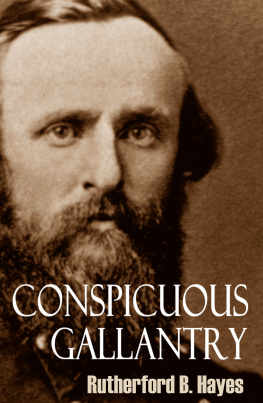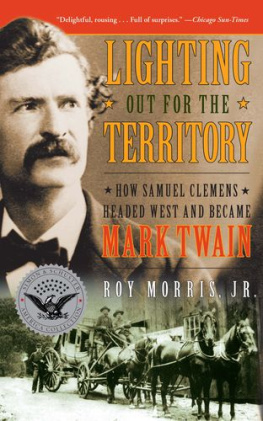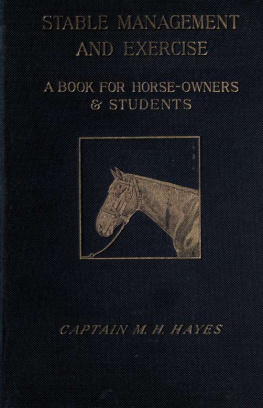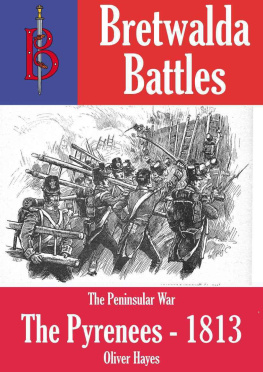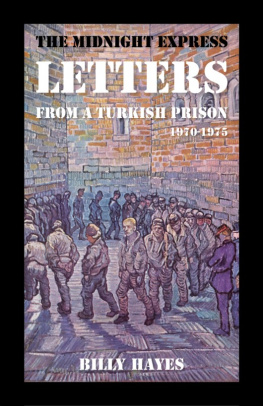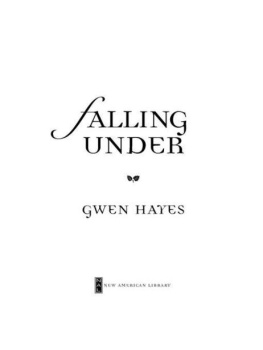
CONSPICUOUS GALLANTRY
CIVIL WAR DIARY AND LETTERS OF
RUTHERFORD BIRCHARD HAYES
NINETEENTH PRESIDENT OF THE UNITED STATES
EDITED BY
CHARLES RICHARD WILLIAMS
18611865
1922
COPYRIGHT 2014 BIG BYTE BOOKS
Discover more lost history from BIG BYTE BOOKS
SECESSION AND WAR1861
MR. HAYES did not perceive the full significance and implication of the Presidential contest of 1860 while it was in progress. The Southern extremists had been threatening disunion so long that, in common with most men of the North, Hayes attached little importance to their present mutterings. In his thought, apparently, it was just an ordinary Presidential canvass, complicated, to be sure, by the fact that there were four candidates, but not one to get excited over. He had figured out in June the probability of Lincolns election, but hardly more than a month before election day he was anything but confident of the result. In a letter to his uncle of September 30, he wrote: I have made a few little speeches in the country townships, and shall make a few more. I cannot get up must interest in the contest. A wholesome contempt for Douglas, on account of his recent demagoguery, is the chief feeling I have. I am not so confident that Lincoln will get votes enough as many of our friends. I think his chances are fair, but what may be the effect of fusions in such anti-Republican States as New Jersey and Pennsylvania, is more than I can tell or confidently guess until after the state elections.
On election day, November 6, he wrote in the Diary: The Southern States are uneasy at the prospect of Lincolns election today. The ultra South threatens disunion, and it now looks as if South Carolina and possibly two or three others would go out of the Union. Will they? And if so, what is to be the result? Will other slave States gradually be drawn after them, or will the influence of the conservative States draw back into the Union or hold in the Union the ultra States? I think the latter. But at all events, I feel as if the time had come to test this question. If the threats are meant, then it is time the Union was dissolved or the traitors crushed out. I hope Lincoln goes in.
In the next few weeks of tense political excitement, with South Carolina openly moving toward secession and President Buchanan supinely looking on in a paralysis of inaction, the Diary is silent, as are also the extant letters, on the absorbing topic of the day. That he was not an indifferent observer of passing events, however, and that for the moment with large numbers of people of the North he contemplated calmly the possibility of the permanent disruption of the Union, the pages that follow clearly demonstrate.
January 4, 1861. South Carolina has passed a secession ordinance, and Federal laws are set at naught in the State. Overt acts enough have been committed. Forts and arsenal taken, a revenue cutter seized, and Major Anderson besieged in Fort Sumter. Other cotton States are about to follow. Disunion and civil war are at hand; and yet I fear disunion and war less than compromise. We can recover from them. The free States alone, if we must go on alone, will make a glorious nation. Twenty millions in the temperate zone, stretching from the Atlantic to the Pacific, full of vigor, industry, inventive genius, educated, and moral; increasing by immigration rapidly, and, above all, freeall freewill form a confederacy of twenty States scarcely inferior in real power to the unfortunate Union of thirty-three States which we had on the first of November. I do not even feel gloomy when I look forward. The reality is less frightful than the apprehension which we have all had these many years. Let us be temperate, calm, and just, but firm and resolute. Crittendens compromise!
Hayess disapproval of the Crittenden Compromise is indicated by the exclamation point. The venerable John J. Crittenden, Senator from Kentucky, sought by eloquent appeals to induce Congress to submit to the States for approval an amendment to the Constitution forbidding Congress to abolish slavery in the District of Columbia so long as it existed in Virginia or Maryland, or to abolish it in national territory south of latitude 36 30the southern line of Kansas. This was to be irrepealable by any subsequent amendment, as were also certain existing paragraphs in the Constitution relating to slavery. Further, Mr. Crittenden wished Congress to strengthen the Fugitive Slave Law and to appeal to the States and to the people for its thorough enforcement.
Windham speaking of the rumor that Bonaparte was about to invade England said: The danger of invasion is by no means equal to that of peace. A man may escape a pistol however near his head, but not a dose of poison.
CINCINNATI, January 6, 1861.
DEAR UNCLE:We have had the usual fun and folly during the holidays and are safely through with them. Mother is almost perfectly well again and seems contented and happy. All the rest of the family are in usual health. I had a few days influenza which passed off doing no harm.
I shall not be very busy, but employment enough for the next few weeks. I expect to spend some days at Columbus within two or three weeks. Mother wants to hear from you; thinks something wrong if you do not write often.
Sincerely,
R. B. HAYES.
S. BIRCHARD.
CINCINNATI, January 12 1861.
DEAR UNCLE:I will write oftener hereafter. I have some work, the days are short, and the state of the country is a never-ending topic which all you meet must discuss, greatly to the interruption of regular habits. I rather enjoy the excitement, and am fond of speculating about it.
We are in a revolution; the natural ultimate result is to divide us into two nations, one composed of free States, the other of slave States. What we shall pass through before we reach this inevitable result is matter for conjecture. While I am in favor of the Government promptly enforcing the laws for the present, defending the forts and collecting the revenue, I am not in favor of a war policy with a view to the conquest of any of the slave States; except such as are needed to give us a good boundary. If Maryland attempts to go off, suppress her in order to save the Potomac and the District of Columbia. Cut a piece off of western Virginia and keep Missouri and all the Territories.
To do this we shall not need any long or expensive war, if the Government does its duty. A war of conquest we do not want. It would leave us loaded with debt and would certainly fail of its object. The sooner we get into the struggle and out of it the better.
There, you can read that perhaps. If you cant, you lose nothing. If you can, it is no more worthless than the dispatches from Congress....
Sincerely,
R. B. HAYES.
S. BIRCHARD.
January 27, 1861.Six States have seceded. Let them go. If the Union is now dissolved it does not prove that the experiment of popular government is a failure. In all the free States, and in a majority if not in all of the slaveholding States, popular government has been successful. But the experiment of uniting free states and slaveholding states in one nation is, perhaps, a failure. Freedom and slavery can, perhaps, not exist side by side under the same popular government. There probably is an irrepressible conflict between freedom and slavery. It may as well be admitted, and our new relations may as well be formed with that as an admitted fact.
CINCINNATI, February 13, 1861.
DEAR UNCLE:We are all well. Mother is in better health; went to church Sunday, and was able to enjoy the Lincoln reception yesterday. The great procession and crowd could be seen well from our windows and steps, and all had a good view
Next page
